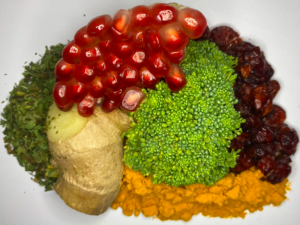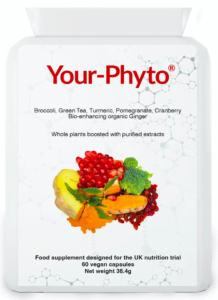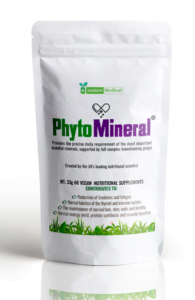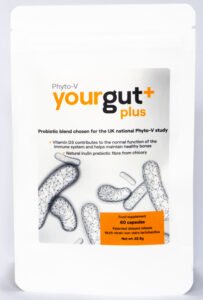 The number of people living with dementia is forecast to double in the next 5 years. Even before full blown brain damage sets in, boarder line cognitive decline can trigger memory problems, fatigue, lack of alertness and demotivation at work and home.
The number of people living with dementia is forecast to double in the next 5 years. Even before full blown brain damage sets in, boarder line cognitive decline can trigger memory problems, fatigue, lack of alertness and demotivation at work and home.
The underlying causes of dementia include accumulation of abnormal proteins in the brain called amyloid, damage to the blood vessels, or direct death of brain cells by mineral deficiency, alcohol, other toxins or chronic inflammation. All, or a combination of these, lead to Alzheimer’s disease, vascular, Lewy body frontotemporal dementia and Wernicke-Korsakoff syndrome,
It’s never too late to make lifestyle and dietary factors changes. However, once noticeable symptoms have developed, a lot of the brain damage has been done so it’s best to start early. The section below summaries the important lifestyle strategies but here, the crucial role of phytochemicals is highlighted:
Phytochemicals within tasty, colourful plants that have been studied extensively for their ability to enhance alertness, mood, motivation and memory and in the long term a reduced the risk of dementia or slow of its progression [Libro]. Many of these plants have multiple different phytochemicals which work together to help the whole body but some specifically have more evidence for their brain protection, via a number of mechanisms:
- Prevents build-up of amyloid or help reabsorb existing plaques
- Dampens excess intracranial inflammation
- Improves oxidative pathways – reducing damage from free radicals and toxins
- Enhances Nitric Oxide (NO) which improves vascular supply and brain oxygenation
- Directly Inhibits brain cell death (apoptosis)
- Supports gut health which can secondarily affect the brain (see below)
Many phytochemicals have more than one mechanism of action and the whole foods, from which they originate, also have other healthy ingredients such as fibre, vitamins, minerals and protein. Here is a description of foods which have the best evidence for dementia protection with examples of the phytochemicals they contain, their mode of action and some studies which highlight their benefits:
 Pomegranate, cranberries, walnuts and broccoli contain many polyphenols including Ellagic acid which has been shown to blocked accumulation of amyloid plaques in the brain preventing prevent the age-related decline in cognition, improved learning and memory performance [Hartman, Dulwich].
Pomegranate, cranberries, walnuts and broccoli contain many polyphenols including Ellagic acid which has been shown to blocked accumulation of amyloid plaques in the brain preventing prevent the age-related decline in cognition, improved learning and memory performance [Hartman, Dulwich].
Cranberries, pomegranate, beetroot, spinach and celery are rich in nitrates which, following interaction with other phytochemicals or vitamin C, are converted by the body to nitric oxide (NO). This relaxes muscles around arteries, improving blood flow resulting in improved oxygenation and removal of toxic metabolites in tissues such as muscles, improving recovery after exercise and brain improving alertness and cognitive function. In one experiment involving participants given cranberry extract significantly improved memory, neural functioning and delivery of blood to the brain compared to placebo [Vanhatolo].
Cocoa, fruits, cranberries and vegetables rich in flavonoids have antioxidant and anti-inflammatory properties, and it is firmly established that their higher intake is associated with a lower risk of developing dementia. A recent study found that , people taking a flavonoid rich supplement had improved memory and cognitive function compared to those taking placebo [Lamport].
Green tea and pomegranate contain epigallocatechin gallate (EGCG) found to help untangle fibres called tau and protect the brain. In Alzheimer’s, excess tau abnormally sticks together in fibrous tangles that spread between brain cells, leading to amyloid formation and cell death [Seidler]
Curcumin (turmeric) as well as anti-inflammatory and anti-oxidative properties have direct neuroprotective properties. One study published in the American Journal of Geriatric Psychiatry (2018) found that curcumin supplementation improved memory and attention in older adults with cognitive impairment [Mishra, Hisikawa].
 Ginger has potent anti-inflammatory and anti-oxidative properties but also helps with the absorption and bioavailability of other phytochemical which is why it’s called a bioenhancer [Kim, Bode, Dudhatra, Ojewole, Grzanna]
Ginger has potent anti-inflammatory and anti-oxidative properties but also helps with the absorption and bioavailability of other phytochemical which is why it’s called a bioenhancer [Kim, Bode, Dudhatra, Ojewole, Grzanna]
Broccoli and other cruciferous vegetables are rich in Isothiocyanates (ITCs) such as sulforaphane (SFN) has been shown in laboratory to decrease production of the main pro-inflammatory cytokines reducing the collateral damage to brain cells from chronic excess inflammation. SFN also has a peculiar capacity to activate antioxidant response to oxidative species and inhibit neuronal apoptotic death pathway [Lee, Park, Gan]. In a laboratory study, broccoli extract amended learning and memory deficits as well as upregulating a heat-shock protein which help degrade amyloid and tau thereby reducing their aggregation in the brain [Lee, Park]. Not a surprise then that over 20 clinical studies have been published linking a higher intake of isothiocyanates rich foods such as whole or concentrated broccoli with a lower risk of dementia [Kim].
Food combinations: It is well known that phytochemicals work synergistically to improve brain function via the various different pathways, highlighted above. That’s why it’s important to have a varied diet containing a wide range of phytochemical rich foods. It is the rationale for the whole foods and extracts within the nutritional supplement YourPhyto. It is a convenient strategy to ensure adequate intake of the most important brain protective foods from the start of each day. Broccoli, green tea, turmeric, pomegranate, cranberries and bio-enhancing organic ginger).
Other lifestyle tips to reduce the risk of dementia
 Advancing age and genetic risk factors cannot be changed but the severity or age of onset can still be significantly changed by diet, lifestyle and the treatment of associated medical conditions. Fact facts to reduce dementia risk include:
Advancing age and genetic risk factors cannot be changed but the severity or age of onset can still be significantly changed by diet, lifestyle and the treatment of associated medical conditions. Fact facts to reduce dementia risk include:
- Exercise 3 hours a week >>
- Keep your weight down >>
- Quit smoking >>
- Try to achieve a regular sleep pattern >>
- Reduced processed meat intake >>
- Ensure adequate intake of omega fats >>
- Moderate your alcohol intake >>
- Control your or treat cholesterol >>
- Control your or treat blood pressure >>
On top of these crucial lifestyle strategies, emerging research has highlighted, the importance of avoiding mineral deficiency, and maintaining a health gut
 Mineral deficiency and dementia
Mineral deficiency and dementia
Across the World, mineral deficiencies (particularly Iodine) is still one of the most common cause of premature dementia. Minerals such as zinc, copper, selenium are essential for efficient oxidative pathways which protect brain tissue. Unfortunately, suboptimal levels of minerals are becoming alarmingly commonplace, as countries get richer because the race to produce large quantities of affordable food, modern intensive farming, overcleaning and processing are depleting minerals from many diets.
 Dietary minerals, can be found in nuts, pumpkin seed, shell fish and seaweed but these are not commonly eaten in the UK. A sensibly dosed multi mineral supplement which includes iodine makes good sense, as a convenient way to ensure adequate intake evenly across the day. The trouble is, many supplements omit really import minerals such as iodine or have inadequate quantities of others so would have little impact on body levels. Of more concern, some have far too high a level of one or more minerals, so with long term use could lead to harmful excess levels.
Dietary minerals, can be found in nuts, pumpkin seed, shell fish and seaweed but these are not commonly eaten in the UK. A sensibly dosed multi mineral supplement which includes iodine makes good sense, as a convenient way to ensure adequate intake evenly across the day. The trouble is, many supplements omit really import minerals such as iodine or have inadequate quantities of others so would have little impact on body levels. Of more concern, some have far too high a level of one or more minerals, so with long term use could lead to harmful excess levels.
Phyto-mineral has been developed by team of nutritional researches to provide exactly the correct safe amount of all the essential minerals each day. Uniquely, it includes whole organic ginger which further protects the gut, it has properties which bioenhance the absorption and utilisation of minerals, has direct anti-inflammatory properties and is rich in ginger phytochemicals which also support brain health.
Gut health and dementia
 There is now convincing evidence of a link between gut health and dementia, particularly Alzheimer’s disease. Here are some on the suggested underlying causative mechanisms:
There is now convincing evidence of a link between gut health and dementia, particularly Alzheimer’s disease. Here are some on the suggested underlying causative mechanisms:
Gut microbiota and inflammation: Imbalances in the gut microbiota, known as dysbiosis, can lead to chronic inflammation in the body, including the brain. Chronic inflammation has been implicated in the development and progression of various neurodegenerative diseases, including the development of amyloid in Alzheimer’s disease.
Gut microbiota and neurotransmitters: The gut microbiota produces various chemicals and neurotransmitters, including serotonin and dopamine, which are important for brain function and mood regulation. Studies have suggested that imbalances in gut microbiota composition may affect neurotransmitter production, potentially contributing to cognitive impairment, fatigue lack of motivation leading to dementia.
Gut-brain axis: The gut and the brain communicate bidirectionally through a complex network of nerves, hormones, and immune system components. This communication pathway is referred to as the gut-brain axis. Alterations in the gut microbiota composition can trigger changes in the production of neuroactive substances that affect brain function, triggering fatigue, agitation and poor memory.
Blood-brain barrier integrity: The gut microbiota may influence the integrity of the blood-brain barrier (BBB), a protective barrier that regulates the passage of substances from the blood into the brain. Disruptions in the gut microbiota can compromise the BBB, potentially allowing harmful substances and inflammation to reach the brain and contribute to neurodegenerative processes.
Strategies to support the gut microbiome
 Lifestyle strategies which help improve gut health include regular exercise, eating fermented foods, stopping smoking, avoiding alcohol, processed meat and added sugar (read more).
Lifestyle strategies which help improve gut health include regular exercise, eating fermented foods, stopping smoking, avoiding alcohol, processed meat and added sugar (read more).
Phytochemical rich foods have a big impact on gut health as well as having direct brain-protective properties as highlighted above.
Probiotic supplements have been investigated as a potential convenient method support brain function. For example, a laboratory study from the University of Cork showed that animals fed with Lactobacillus had significantly fewer levels of the stress-induced hormone, corticosterone and had altered expression of receptors for the neurotransmitter GABA in the brain. In humans, a study from The University of California, showed that healthy women consuming probiotics were reported to have improved brain function [Kim]. If you do want to explore a probiotic make sure it’s well made and safe, such as yourgutplus which was designed for a national clinical trial so has high level of quality assurance (read More)
References
Seidler PM, et al. Structure-based discovery of small molecules that disaggregate Alzheimer’s disease tissue derived tau fibrils in vitro. Nature Communications. 2022;13(1):5451. doi: 10.1038/s41467-022-32951-4.
Kim, J., Sulforaphane (cryciferus vegetables) and dementia. Lee, S., Choi, B.-R., Yang, H., Hwang, Y., Park, J. H. Y., LaFerla, F. M., Han, J.-S., Lee, K. W., Kim, J., Mol. Nutr. Food Res. 2017, 1600194.
Libro R, Giacoppo S, Soundara Rajan T, Bramanti P, Mazzon E. Natural Phytochemicals in the Treatment and Prevention of Dementia: An Overview. Molecules. 2016 Apr 21;21(4):518. doi: 10.3390/molecules21040518. PMID: 27110749; PMCID: PMC6274085.
Thomson M et al. The use of ginger as an anti-inflammatory and antithrombotic agent. Prostaglandins Leukotrienes and Essential Fatty Acids. 2002;67(6):475–8. [PubMed]
Grzanna R, et al. Ginger – a herbal medicinal product with broad anti-inflammatory actions. Journal of Medicinal Food. 2005;8(2):125–132. [PubMed]
Ojewole J et al Analgesic, antiinflammatory and hypoglycaemic effects of Ginger. Phytotherapy Research. 2006;20(9):764–772. [PubMed]
Kim JK, Kim Y, Na KM, Surh YJ, Kim TY. [6]-gingerol prevents UVB-induced ROS production and COX-2 expression in vitro and in vivo . Free Radical Research. 2007;41(5):603–614. [PubMed] [Google Scholar]
Bode AM, Dong Z. The Amazing and Mighty Ginger. In: Benzie IFF, Wachtel-Galor S, editors. Herbal Medicine: Biomolecular and Clinical Aspects. 2nd edition. Boca Raton (FL): CRC Press/Taylor & Francis; 2011. https://www.ncbi.nlm.nih.gov/books/NBK92775/
Qazi GN, Bedi KL, Johri RK, et al. Bioavailability enhancing activity of Zingiber officinale and its extracts/fractions thereof. United States Patent Number, US2003/0170326A1, 2003.
Dudhatra G et al A Comprehensive Review on Pharmacotherapeutics of Herbal Bioenhancers ScientificWorldJournal. 2012; 2012: 637953. doi: 10.1100/2012/637953
Mishra S, Palanivelu K. The effect of curcumin (turmeric) on Alzheimer’s disease: An overview. Ann Indian Acad Neurol. 2008 Jan;11(1):13-9. doi: 10.4103/0972-2327.40220. PMID: 19966973; PMCID: PMC2781139.
Hishikawa N, Takahashi Y, Amakusa Y, Tanno Y, Tuji Y, Niwa H, Murakami N, Krishna UK. Effects of turmeric on Alzheimer’s disease with behavioral and psychological symptoms of dementia. Ayu. 2012 Oct;33(4):499-504. doi: 10.4103/0974-8520.110524. PMID: 23723666; PMCID: PMC3665200.
Vanhatalo et al https://neurosciencenews.com/cranberries-memory-dementia-20696/
Lamport DJ, Christodoulou E, Achilleos C. Beneficial Effects of Dark Chocolate for Episodic Memory in Healthy Young Adults: A Parallel-Groups Acute Intervention with a White Chocolate Control. Nutrients. 2020 Feb 14;12(2):483. doi: 10.3390/nu12020483. PMID: 32075015; PMCID: PMC7071338.
Kim H et al (2018). The combined effects of lactobacillus and exercise in healthy adults on mood. Food Science and Nutrition, 6 (7), 1968-74
Lee C., Park G.H., Lee S.-R., Jang J.-H. Attenuation of β-amyloid-induced oxidative cell death by sulforaphane via activation of NF-E2-related factor 2. Oxid. Med. Cell. Longev. 2013;2013 doi: 10.1155/2013/313510.
Park H.-M., Kim J.-A., Kwak M.-K. Protection against amyloid beta cytotoxicity by sulforaphane: Role of the proteasome. Arch. Pharm. Res. 2009;32:109–115. doi: 10.1007/s12272-009-1124-2. [PubMed] [CrossRef] [Google Scholar]
Gan N., Wu Y.-C., Brunet M., Garrido C., Chung F.-L., Dai C., Mi L. Sulforaphane activates heat shock response and enhances proteasome activity through up-regulation of Hsp27. J. Biol. Chem. 2010;285:35528–35536. doi: 10.1074/jbc.M110.152686. [PMC free article] [PubMed] [CrossRef] [Google Scholar]
Dulwich et al 2012 Pomegranate Supplementation Improves Affective and Motor Behavior in Mice After Radiation Exposure, Vol 2013: Article ID 940830
Harman et al 2006 Pomegranate Juice Decreases Amyloid Load and Improves Behavior in a Mouse Modell of Alzheimer’s Disease, Neurobiology of Disease 24: 506-515.

Leave A Comment